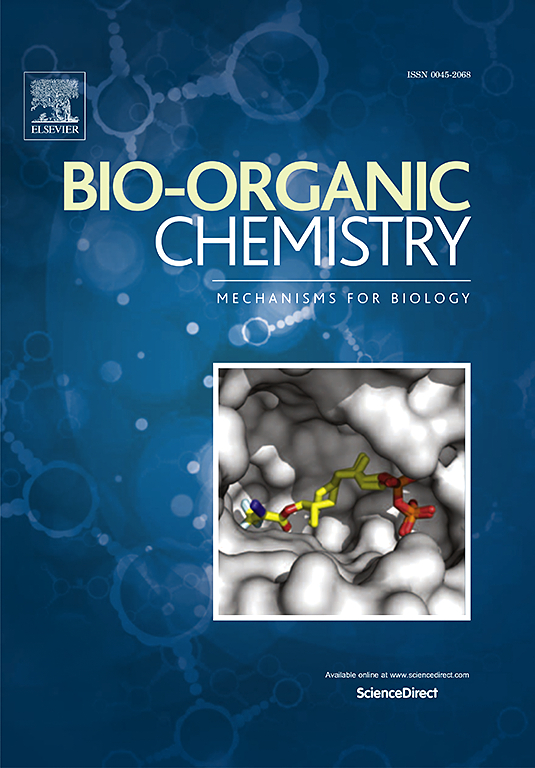Discovery of highly potent mTOR inhibitors aimed at suppressing the progression of acute myeloid leukemia
IF 4.5
2区 医学
Q1 BIOCHEMISTRY & MOLECULAR BIOLOGY
引用次数: 0
Abstract
Acute myeloid leukemia (AML) is a common hematological malignancy with complex etiology; however, current standard chemotherapy regimens for AML show limited efficacy and unsatisfactory tolerability. Herein, a novel class of trisubstituted triazine mTOR inhibitors was designed and synthesized, and the optimal compound, HPT-11, exhibited potent inhibition against mTOR kinase and Molm-13 cell proliferation activities with inhibitory IC50 values of 0.7 and 12 nM, respectively. An antitumor mechanism investigation demonstrated that HPT-11 could potently block the downstream signaling pathway of mTOR and effectively induce apoptosis and autophagy. In addition, in vitro metabolic stability tests further confirmed the stable profiles of HPT-11 in artificial gastrointestinal fluids, rat plasma, and liver microsomes incubating conditions. Overall, our current medicinal chemistry work confirmed that compound HPT-11 is a potent mTOR inhibitor with promising activity in vitro, suggesting its potential as a candidate for further development in the treatment of AML.

求助全文
约1分钟内获得全文
求助全文
来源期刊

Bioorganic Chemistry
生物-生化与分子生物学
CiteScore
9.70
自引率
3.90%
发文量
679
审稿时长
31 days
期刊介绍:
Bioorganic Chemistry publishes research that addresses biological questions at the molecular level, using organic chemistry and principles of physical organic chemistry. The scope of the journal covers a range of topics at the organic chemistry-biology interface, including: enzyme catalysis, biotransformation and enzyme inhibition; nucleic acids chemistry; medicinal chemistry; natural product chemistry, natural product synthesis and natural product biosynthesis; antimicrobial agents; lipid and peptide chemistry; biophysical chemistry; biological probes; bio-orthogonal chemistry and biomimetic chemistry.
For manuscripts dealing with synthetic bioactive compounds, the Journal requires that the molecular target of the compounds described must be known, and must be demonstrated experimentally in the manuscript. For studies involving natural products, if the molecular target is unknown, some data beyond simple cell-based toxicity studies to provide insight into the mechanism of action is required. Studies supported by molecular docking are welcome, but must be supported by experimental data. The Journal does not consider manuscripts that are purely theoretical or computational in nature.
The Journal publishes regular articles, short communications and reviews. Reviews are normally invited by Editors or Editorial Board members. Authors of unsolicited reviews should first contact an Editor or Editorial Board member to determine whether the proposed article is within the scope of the Journal.
 求助内容:
求助内容: 应助结果提醒方式:
应助结果提醒方式:


